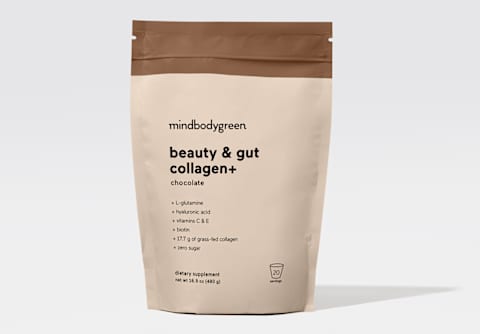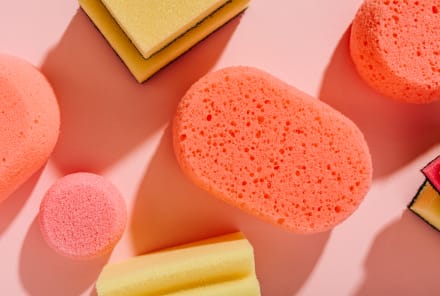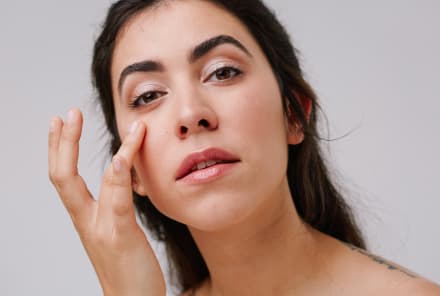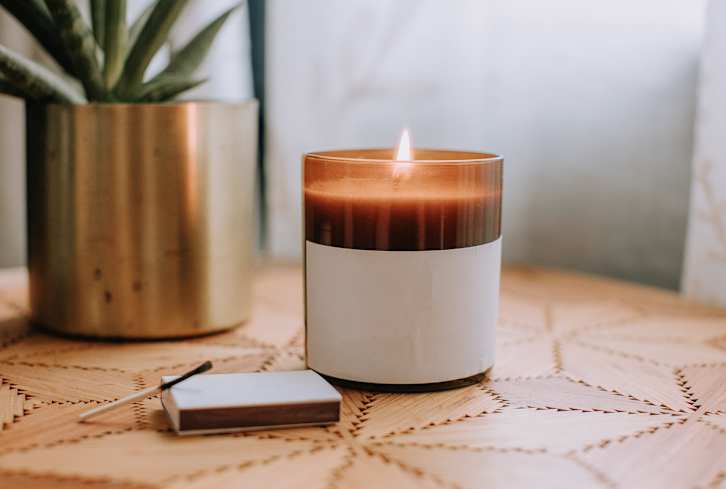Advertisement
This Is The Bare Minimum Skin Care Routine For Men 50+


Father's Day is right around the corner, and we're here to provide a very important PSA: Dads need skin care, too. Although, given the mass amount of products and tips available, it can be difficult to know exactly which steps are actually essential.
When we asked board-certified dermatologist and chief medical officer at Fig.1 Courtney Rubin, M.D., FAAD, about the most common mistake men make when it comes to skin care, she replied, "Not having a skin care routine!" So suffice it to say—for some folks, there's some work to be done.
Here, experts explain the basic steps to a great skin care routine for men over 50. With these easy tips, perhaps Dad will finally slather on that mineral sunscreen you oh-so-subtly gifted him.
Is men's skin different?
At the end of the day, skin is skin. That being said, there are a few key differences between men's and women's skin that are important to understand.
"Men's skin is thicker than women's skin, due to increased amounts of testosterone," board-certified dermatologist Corey L. Hartman, M.D., FAAD, and founder of Skin Wellness Dermatology, tells mbg. "Testosterone also accounts for why men's skin texture is rougher." And we can't forget facial hair: "If men are consistently shaving their face, their skin may be drier than women's skin," Hartman explains.
Bare minimum skin care routine for men 50+.
Experts attest that this is the ideal bare minimum routine for men 50 and over. That being said, different skin concerns call for different products, so always consult a dermatologist if you're looking to treat a skin condition of any kind. Otherwise, proceed with the basics:
Cleanser
At least every night, if not twice a day, you should be cleansing your skin. It's important to wash off the excess oil, dirt, and pollutants that latch onto your skin throughout the day. If your skin is on the drier side, look for a hydrating formula. Check the label for ingredients like hyaluronic acid and ceramides.
If you struggle with excess oil or congested skin, try to find something with exfoliating or oil-balancing properties. Look for ingredients like AHAs, BHAs, or niacinamide. Not sure what to pick? Here's a roundup of some of our go-to cleansers.
Retinol
You may be thinking, "Isn't retinol an extra step?" But here's the thing: Retinol has tons of benefits, especially for aging skin. Don't just take our word for it; according to Hartman, retinol has the power to regulate cell turnover, exfoliate the skin, even tone, control oil production, smooth fine lines and wrinkles, and hamper the breakdown of collagen. But only apply it at night—retinol causes photosensitivity. You can read more about the science-backed benefits of retinol here.
Moisturizer
Once you've cleansed and treated the skin, you must follow up with a moisturizer. This will help keep the skin barrier intact and encourage better skin health overall. Not to mention, it will combat the tight, dry feeling that comes with avoiding moisturizer post-cleanse.
While most men tend to have oilier skin (thanks, again, to the testosterone), everyone with aging skin can struggle with dryness as well. Here's a list of our favorite moisturizers for combination skin, if you're in the market for something middle-ground.
Sunscreen
"Not wearing sunscreen will advance all signs of aging," celebrity aesthetician Joshua Ross of SkinLab in Los Angeles tells mbg. Hartman recommends SPF 30 and over for best protection. Here's a list of the very best mineral SPF lotions for the face, so you can start protecting your skin ASAP.
And it's never too late to hop aboard the sunscreen train: "Men can see brighter skin with less redness pretty soon after incorporating daily sunscreen, and after a year of consistent use, there can be some changes in the overall tone and texture of the skin," Hartman explains.
We could dedicate an entire article to the importance of daily SPF, but we'll just send you here to learn more about proper sun care.
Collagen supplements
Healthy skin starts from the inside out. Yes, this means drinking enough water and eating a nutritious diet, but it also means maintaining your collagen production. Collagen, after all, is what keeps your skin firm and taut.*
As you age, your collagen production begins to slow down. Your natural levels can also decline due to environmental factors and stressors, such as sun exposure (hence, daily SPF) and high-sugar diets1. And collagen supplements have been shown to help promote the body's natural production of collagen2.*
What does adding a collagen supplement do for the skin, exactly? Well, if you select a high-quality, well-researched product with hydrolyzed collagen peptides, like the mbg beauty & gut collagen+, the formula can promote skin elasticity and hydration, help protect cells from oxidative stress and photoaging (which can lead to fine lines and wrinkles), and support a healthy intestinal lining.*
The takeaway.
When it comes to skin care for men 50-plus, we understand the value of a less-is-more approach. Truth be told, while there are plenty of fancy and enticing products out there, the essential steps are quite simple: Cleanse, treat, moisturize, and protect. And if you want to go the extra mile, adding skin-loving supplements can contribute to healthy aging from the inside out. Want to learn more about collagen supplementation? Here's our full guide to understanding why it works.*
Watch Next
Enjoy some of our favorite clips from classes
Enjoy some of our favorite clips from classes
What Is Meditation?
Mindfulness/Spirituality | Light Watkins
Box Breathing
Mindfulness/Spirituality | Gwen Dittmar
What Breathwork Can Address
Mindfulness/Spirituality | Gwen Dittmar
The 8 Limbs of Yoga - What is Asana?
Yoga | Caley Alyssa
Two Standing Postures to Open Up Tight Hips
Yoga | Caley Alyssa
How Plants Can Optimize Athletic Performance
Nutrition | Rich Roll
What to Eat Before a Workout
Nutrition | Rich Roll
How Ayurveda Helps Us Navigate Modern Life
Nutrition | Sahara Rose
Messages About Love & Relationships
Love & Relationships | Esther Perel
Love Languages
Love & Relationships | Esther Perel



















